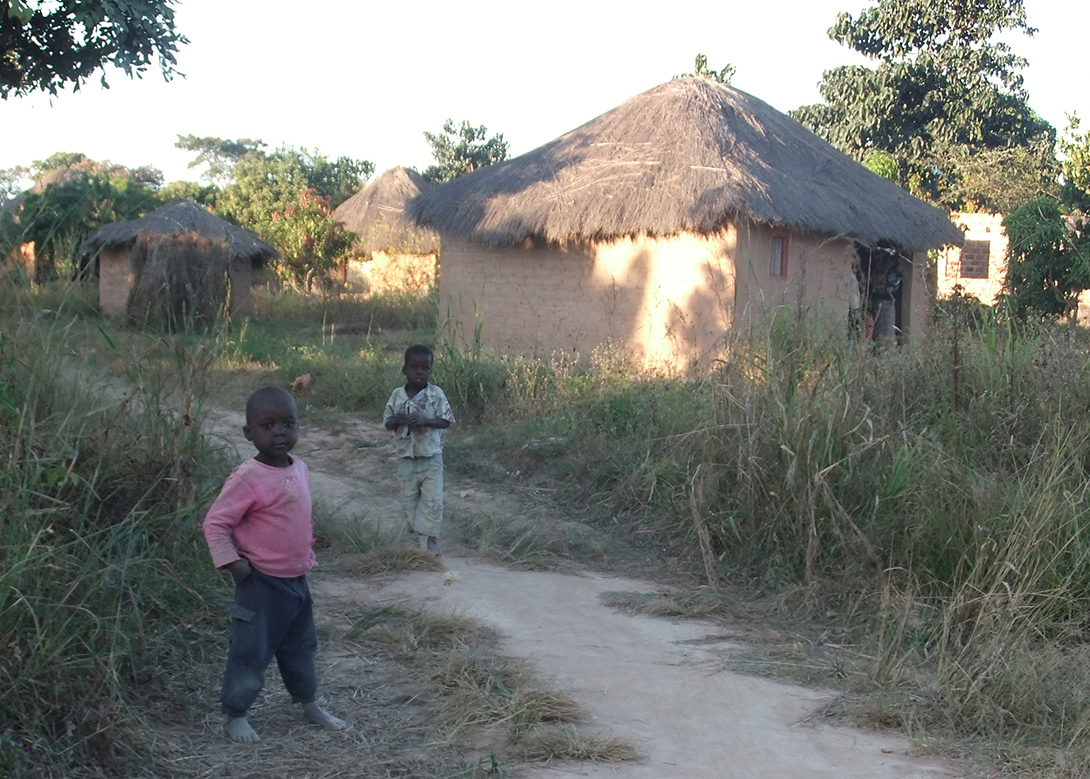At the restaurant of the lodge where I’ve been staying in Mansa, Zambia, there are a lot of very friendly members of staff. The one we’ve got to know particularly well during our stay here is Sharon.
On our last night here, she asked me which country I was from – I explained I was from England. ‘My mother lives in England,’ she said, ‘She works in a hospital in Oxford.’
‘That’s not far from me,’ I answered. ‘Oxford’s about an hour and a bit from me. I live in Wiltshire.’

‘My mother used to live in Wiltshire,’ came the surprising reply, ‘She worked in a hospital in Trowbridge and had a house there.’
I stared at her in astonishment, 'But that’s where I live,' I responded and we both laughed. Two women who live thousands of miles apart who have a town in Wiltshire in common. Honestly, you couldn’t make it up.
I'm here in Zambia to see work around tackling gender-based violence (GBV), particularly that of the church here which is supported by
Us - the charity I work for but have also been meeting representatives from other organisations tackling this very real problem.
I visited the victim support office in Mansa listening to the challenges that the team there face as they help women and men who are going through all kinds of gender-based violence.
Their challenges are many – witnesses who can’t afford to travel and who need looking after, victims who withdraw their evidence because they’re afraid to lose the breadwinner from the family home, a long-drawn out court process. The list was endless and yet their commitment to the job was immense.
I thought of the police back in Wiltshire who’ve faced their own – often similar - challenges dealing with domestic abuse in all its forms and felt the world shrink in size.
Earlier in our stay we had met Evans Sikabbubba, who works with the district commissioner. He emphasised a community-wide commitment to dealing with GBV which is frighteningly widespread. He and I had an interesting discussion around the whole issue and I asked him about why it was important for Government, church, health and police to all work together.
His answer was both simple and striking: 'It is not supposed to be the responsibility of one institution,' he said, ‘We can’t just leave it to one group or we are finished.’
As he said those words, I was writing them in my notebook but with an echo of something else in my mind. It suddenly came to me that those words were very similar to some the former deputy chief constable of Wiltshire, Stephen Long had said to me more than seven years ago, about how it would only be partnership between police, health, social services and community groups that would make the difference in reducing domestic abuse.
And the world shrank in size again.
It shrank still further when I later remembered the words of the county’s former chief constable Dame Elizabeth Neville as she backed a campaign to tackle domestic abuse in Wiltshire a decade ago. Someone has to take the lead, she said, and we have to show that we won’t allow this in our communities. Step back into Zambia in 2014 and there are headmen of villages, church leaders, Government ministers saying the same thing.
It strikes me these days that the more I travel, the smaller I can see the world really is. We share fears, joys, sorrows, difficulties, blessings and hopes. The world is small and there really is nothing new under the sun.
I’ve written in a previous blog (
Why crossing continents should be no distance at all) about how more unites us than divides us and how we have far more in common with the rest of the world than we think wherever we live in it. I do find it difficult when I hear people wanting to distance themselves from those who might look a little different or speak another language or observe a belief system that’s not the same as our own. But more, I also find it sad that people can be so ready to shut themselves off from others who are really not so very different.
One of the best moments of this trip for me, was in a church last Sunday morning, when one of the hymns was
What a Friend we have in Jesus. While the congregation sang in Bemba, I sang in English and caught the eye of a choir member. She held her hands together in a very Zambian gesture which I returned. United in song, united in our hearts.
Later I said to the local Bishop, the Rt Revd Robert Mumbi who had led the service, that I had loved singing with his congregation. 'I hope you didn’t mind that I sang in English while you sang in Bemba,' I grinned. He laughed but then was serious.
'The language is different,' he said, 'But the words are the same.'
Heather Skull is a former BBC Radio Wiltshire journalist who works for the international church-based charity Us and is a member of Trowbridge Baptist Church. She blogs at tractorgirl66.wordpress.com, where this article first appeared